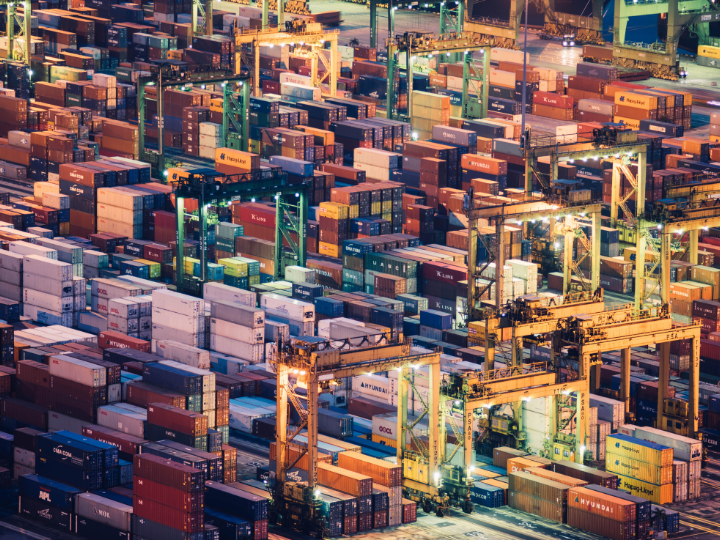by Judy Dempsey*
I remember it well. Sitting in the packed press room in Brussels.
Over twenty years ago, a European Commission spokesman was waxing lyrical about how the EU was about to strike a trade deal with Mercosur.
He said these four countries—Argentina, Brazil, Paraguay, and Uruguay—were almost on board to wrap up negotiations. Once signed, the deal would create a special economic relationship between this part of Latin America and Europe. The EU’s internal market would become a template for the region.
Several years later, Brussels opened trade talks with Australia. The big hope was that the accord would be sealed in October 2022—just as the EU had hoped the Mercosur deal would be clinched this December.
Neither happened—for now, at least.
The failure to conclude a deal with Australia in Osaka on December 3 and with Mercosur ahead of the December 7 Mercosur leaders’ summit is a huge blow to the EU’s ambitions to extend its trade influence. Not only that. It shows how the union’s idea of free trade agreements (FTAs) has turned into something much more than reducing tariffs and having access to each other’s markets. These agreements have become complex, political, and incoherently strategic.
“The FTAs were and are about lowering trade barriers,” said Holger Gorg, professor of international economics at the University of Kiel. “But they have since included health and labor rights issues, investment, climate, and environmental issues. That’s where the frictions come in. The FTAs are turning into deep trade agreements and that is perhaps just too much.”
For the Australian government, the EU’s stance ended up being too rigid and protectionist. “It wanted access to EU farm produce markets, particularly for beef, sheep, dairy, and sugar products,” said Geoff Kitney, senior Australian political commentor.
The EU played hard ball on other issues too, refusing to allow Australia to use names such as parmesan, feta, and prosecco, which it argued should be applied only to European products.
“With the EU refusing to go as far as Australia was demanding on access for farm products and naming rights, Australian negotiators were instructed by the government to walk away from the talks,” Kitney explained.
EU talks with Mercosur faced a setback, too.
It was not just because of a newly elected populist and climate-denier president in Argentina. It was about the environmental demands the EU made on the region, particularly Brazil’s Amazon basin. It was also about agriculture, especially the extent to which export tariffs to the EU should be reduced.
French President Emmanuel Macron opposed the current Mercosur deal, claiming the region would be exporting goods to the EU with a “disgusting carbon footprint.”
In reality, France and powerful farm lobbies in other EU countries didn’t want Mercosur or Australian farm produce. They would compete with the bloc’s own sector, which is heavily subsidized through the Common Agricultural Policy (CAP).
Ken Heydon, visiting fellow at the London School of Economics and a former Australian trade official, stresses that the CAP accounts for about a third of the EU’s budget. Tariffs on EU farm imports remain roughly three times higher than those on non-agricultural goods. The EU was not prepared to open its markets to Australia or Mercosur.
Agricultural imports have always been a highly political issue for the EU. But the breakdown of these two sets of talks also reveals something else about the complexity of trade talks in the current political and economic environment.
They are in part a victim of current times, argues Heydon. With liberal trade policy in retreat, government-fueled industrial policy is on the rise.
The EU is also overreaching itself in the way its uses FTAs.
The agreement it forged with New Zealand in June 2022 was the first that explicitly provided for trade sanctions for noncompliance with international labor and environment standards. Gorg says the Europeans are now trying to regulate more and more. Indeed, for all its emphasis on environmental standards, what about regulating how EU member states literally export their waste to third countries?
“The world is becoming more complex. International production is increasingly organized in global supply chains and trade has taken on new dimensions such as environmental issues, labor rights, human rights,” Gorg told me. “Maybe trade, as trade, should be the focus and leave other issues, such as labor rights, for later on.”
EU negotiators may think they have time on their hands; that Mercosur and Australia will come back to the negotiating table because they want access to the world’s biggest market.
They shouldn’t hedge their bets. Australia and Mercosur have leverage.
“Australia believes it has muscle it has previously lacked in the form of abundant reserves of strategic raw minerals the EU needs, especially since the disruption caused by Russia’s war in Ukraine,” said Kitney. “The EU’s hunger for reliable supplies of strategic minerals would force it to come back to the negotiating table in the relatively near future,” he told Strategic Europe.
Meanwhile, Argentina is one of the largest global producers of borate and lithium, and Brazil of bauxite, copper, iron ore, manganese, and natural graphite. An FTA with Mercosur could give the EU some economic security by diversifying its imports of strategic raw materials away from China and Russia, according to a recent report from the European Centre for International Political Economy.
Yet that economic security comes at a cost for both sides. It’s about reconciling realpolitik with values. It’s about strengthening ties with countries to give the FTAs strategic depth. And it’s about the EU realizing that values-based trade deals may be counterproductive.
*nonresident senior fellow at Carnegie Europe and editor in chief of Strategic Europe
**first published in: Carnegieeurope.eu




 By: N. Peter Kramer
By: N. Peter Kramer
